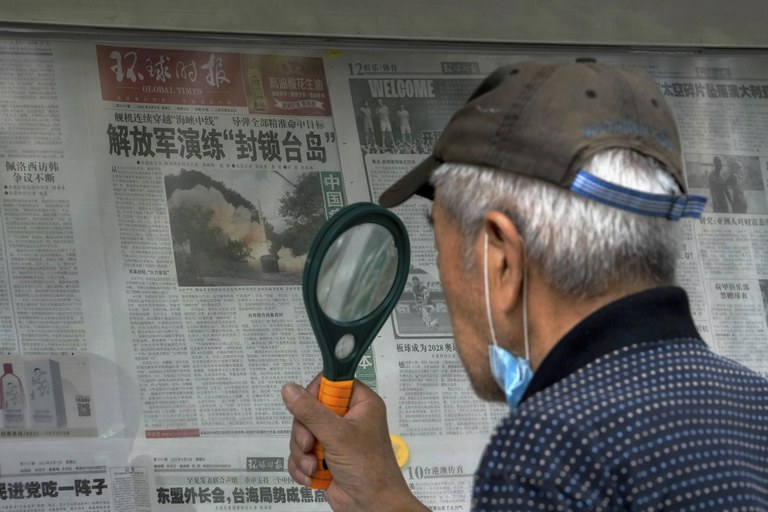Blinken: China speeding up plans for takeover of Taiwan
Share

In this Aug. 27, 2021 file photo provided by U.S. Coast Guard, Legend-class U.S. Coast Guard National Security Cutter Munro (WMSL 755) transits the Taiwan Strait during a routine transit with Arleigh Burke class guided-missile destroyer USS Kidd (DDG 100). Recent tensions over Taiwan are due to a change in approach from Beijing, which is pursuing its goal of reunification on a much faster timeline,” U.S. Secretary of State Antony Blinken said Monday.
Recent tensions over Taiwan are due to a change in approach from Beijing, which is pursuing its goal of “reunification on a much faster timeline,” U.S. Secretary of State Antony Blinken said Monday.
The warning came as a key senator proposed doubling U.S. military aid to Taiwan to $10 billion as part of a defense spending bill. Chinese President Xi Jinping on Saturday also used his opening speech for the 20th Communist Party National Congress to vow Beijing would “never promise to renounce the use of force” to reunify with Taiwan.
Speaking alongside former Secretary of State Condoleeza Rice and former Defense Secretary Jim Mattis at Stanford University, Blinken said U.S.-China policy on Taiwan had proven “incredibly successful” for decades, with both sides prioritizing the maintenance of peace.
But he said that was no longer the case.
“There has been a change in the approach from Beijing toward Taiwan in recent years,” Blinken said. “Instead of sticking with the status quo that was established in a positive way, a fundamental decision [was made] that the status quo was no longer acceptable and that Beijing was determined to pursue reunification on a much faster timeline.”
“If peaceful means didn’t work, then it would employ coercive means – and possibly, if coercive means don’t work, maybe forceful means – to achieve its objectives,” he said. “And that is what is profoundly disrupting the status quo and creating tremendous tensions.”

Blinken said U.S. pledges to defend Taiwan in the event of an invasion from Beijing – eschewing decades of “strategic ambiguity” about whether the U.S. would directly confront China – had been forced by the elevated threats of such an event, which he said would be devastating.
“On semiconductors, if Taiwanese production were disrupted as a result of a crisis, you would have an economic crisis around the world,” Blinken said. “So there’s a profound stake not just for us but for countries around the world in preserving peace and stability when it comes to Taiwan and the straits, and to making sure that the differences that exist are resolved peacefully. So that’s why we’ve been so engaged on this.”
Kharis Templeman, an expert on Taiwan at Stanford University’s Hoover Institution who attended Blinken’s talk on Monday, said that his comments reflected a changing situation between Beijing and Taiwan.
“It’s fair to say the majority view in the Biden administration is that Xi has moved from deterring independence as his top priority, to making progress toward unification,” said Templeman. But he added that “the comment about a ‘much faster timeline’ is a bit misleading.”
“Faster than what?” he said. “Faster than waiting indefinitely, but nothing more certain than that. I do not see a consensus within the administration that Xi has set a concrete deadline for achieving unification, or even that it needs to happen while he is still in charge. Anyone who tells you a specific deadline is reading too much into the tea leaves.”

The comments came as the United States seeks to ramp up military support for Taiwan in the wake of Russia’s Feb. 24 invasion of Ukraine, which has raised global concerns about the threat of a similar invasion of Taiwan.
Senate Armed Services Chairman Jack Reed (D-R.I.) last week filed an amendment to the 2023 National Defense Authorization Act that doubles military aid to Taiwan to over $10 billion, doubling the $4.5 billion initially proposed by Senate Foreign Relations Chairman Bob Menendez (D-N.J.). The Senate is expected to vote on the bill next month.







